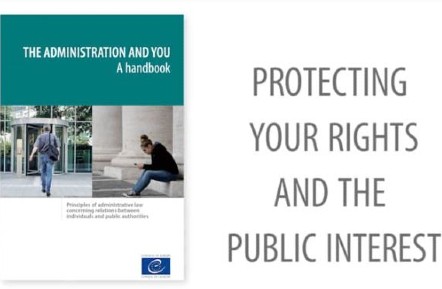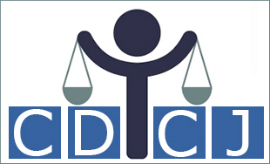COVID-19

Member States

Member States are taking measures they deem necessary and appropriate to adapt to the sanitary crisis of COVID-19 and the changing context, including that in the field of justice.
In Ireland, for example, video technology was used for the first time to hold a supreme court hearing remotely: see press release.
Please also read in the section “CDCJ standards and COVID-19 / E-justice” below, the guidelines on electronic evidence, which includes the possibility of taking oral evidence remotely.

European Committee on Legal Co-operation

Due to COVID-19, the planning of meetings and events of the Council of Europe has been disrupted. The precautionary measures taken by member states to combat the spread of the coronavirus have resulted, on the one hand, the disruption of the calendar of meetings and events of the Council of Europe in general and of the CDCJ in particular and on the other, the adapting of working methods to the health situation to allow work and activities to continue. Thus the drafting groups of the CDCJ on Legal Aid Systems and on Online Dispute Resolution mechanisms were able, through consultations by mail and working sessions by videoconference, to complete their drafting work on guidelines this year, as planned.
CDCJ standards and COVID-19
Certain standards of public and private law of the Council of Europe are very relevant in the current context of COVID-19 such as those of whistleblowers, electronic justice, administration-public relations, advance directives:

Whistleblowers

The Covid-19 pandemic proves how important it is that officials and other persons with knowledge of wrongdoing or malpractice within public administrations or private enterprises that will seriously threaten the public interest should report as early as possible. In normal conditions, reporting internally or to the public authorities should be sufficient however sometimes conditions will require the whistleblower to go directly to the public. People who speak out take considerable risks and need to be protected. Also, their disclosures need to be followed up, investigated and, where the report is shown to have substance, remedial action taken. Ensuring that people can speak out safely, as early as possible, and easily is the essence of Recommendation CM/Rec(2014)7 on the protection of whistleblowers which was adopted in 2014 by the Council of Europe to encourage its member states to have a national framework that facilitates whistleblowing and protects whistleblowers. More information can be found at Protecting whistleblowers.

E-Justice


Relations Administration-Public

Public administrations need to consider the impact of the Covid-19 crisis on their relations with the community. People rely on public authorities for many aspects of their daily lives and maintaining public trust in the functioning and decision-making of the public administration is crucial. For this the principles of good administration are in this situation more than ever vital: legal certainty, objectivity, transparency, participation, judicial review. Full guidance on how public officials can apply these principles in their day-to-day work is set out in the Council of Europe Handbook The Administration and You. Two short videos present the handbook: please click here for the first one and here for the second.

Advanced directives for incapacity

The sad context of the global health crisis we are experiencing proves how important it is to be prepared for serious illness and incapacity. Now is the time to prepare life wills and other legal arrangements that can clarify how you wish to be cared for in such an eventuality. How do you want your property and finances to be managed and by whom? Who should make decisions about where you live and in what conditions? Who should make decisions about your health care and what sort of health care do you want? It is our right to manage our lives as we consider best - the right to self-determination. Advice to governments on putting in place the most appropriate legal arrangements in light of national circumstances is set out in Recommendation CM/Rec(2009)11 on principles concerning continuing powers of attorney and advance directives for incapacity that the Council of Europe adopted in 2009. Further information on planning and arrangements for future incapacity can be found in the explanatory memorandum which accompanies the recommendation. See also the related webpage.



